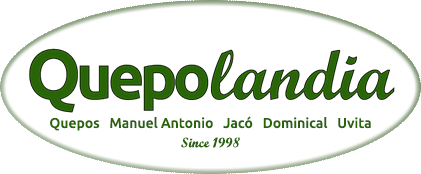Tener = To have #1 (again)
By Os
¡Hola gente! ¿Todo bien? ¿Did you read my last ariticle? It was bout the verb TO HAVE #1 in español. TENER. As it is a very, very important action word, today we’ll review what we learned last month… Let’s start filling the following box.
TenER = TO ______ #
| I | you, s/he |
| we | y’all, they |
I hope these you filled it like this one:
TenER = TO have #1
| I tenGO | you, s/he tiene |
| we tenEMOS | y’all, they tienen |
Remember that Tener means to have but only when you have or don’t have something like in:
“I don’t have a car.”
Tener does NOT mean to have when you have done or haven’t done something like in:
“I haven’t spoken with my mother today.”
Tener is NOT useful… Haber is the verb we must use.
That’s the reason why:
Tener = To have #1. And Haber = To have #2.
You already knew that because one month ago I told you that in Spanish there are two different action words that mean TO HAVE.
Next month we’ll have an article for Haber. Today, we’ll review Tener.
I am going to write some phrases in español and you are going to translate them to inglés. I am going to translate them too, using my word-for-word Spanglish brain.
Yo no tengo una bicicleta.
______________________________ (your translation).
I not have a bicycle. (my translation).
Yo tengo una mascota.
______________________________ (your translation).
I have a pet. (my translation).
Yo no tengo 99 años.
______________________________ (your translation).
I not have 99 years. (my translation).
Yo no tengo frío.
______________________________ (your translation).
I not have cold. (my translation).
Yo tengo mucho calor.
______________________________ (your translation).
I have a lot of heat. (my translation).
Yo no tengo hambre.
______________________________ (your translation).
I not have hunger. (my translation).
Yo tengo mucha sed.
______________________________ (your translation).
I have a lot of thirst. (my translation).
Yo no tengo que trabajar hoy.
______________________________ (your translation).
I not have that to work today. (my translation).
Yo tengo que estudiar español.
______________________________ (your translation).
I have that to study Spanish. (my translation).
Well done guys, send your translations to my e-mail:
Now I am going to ask you some questions in español and you are going to answer them in Spanish. Right below your answer will be mine. Pay attention to the explanations that I give to all my Spanish answers.
¿Usted tiene bicicleta?
______________________________ (your answer).
Yo no tengo bicicleta. (my answer).
I don’t want a bicyble. (my explanation).
¿Usted tiene mascotas?
______________________________ (your answer).
Yo no tengo mascotas. (my answer).
My landlords don’t allow animals. (my explanation).
¿Cuántos años tiene usted?
______________________________ (your answer).
Yo tengo 33 años de edad. (my answer).
In English you are ## years old. In Spanish you have ## years of age. Think that your age is your possession, your years old are your possession. (my explanation).
¿Usted tiene frío o tiene calor?
______________________________ (your answer).
Yo tengo calor. (my answer).
In English you are hot or cold. In Spanish you have heat or cold. Think that the sensation of hotness or coldness is something that you have, not something that you are. (my explanation).
¿Usted tiene hambre o tiene sed?
______________________________ (your answer).
Yo tengo sed. (my answer).
In English you are hungry or thirsty. In Spanish you have hunger or thirst. Think that the sensation of hunger or thirst is something that you have, not something that you are. (my explanation).
¿Qué tiene que hacer hoy?
¿What you have that to make/to do today?
______________________________ (your answer).
Yo no tengo que hacer mucho. (my answer).
Today is my day off. In English and in Spanish when obligation comes we have to make/to do some things or some actions. (my explanation).
Well done guys, send your answers to my e-mail:
One more:
¡Yo tengo ganas de ir a la playa!
______________________________ (your translation).
¡I have desire of to go to the beach! (my translation).
In English you feel like doing something. In Spanish you have desire/wish of to do something. Think that the desire of going to the beach is something that you have, not something that you feel like. (my explanation).
I am pretty sure by now you have realized how and when to use the verb TENER. Let’s make some “rules” in case you like rules or regulations…
Uses of TENER.
– to indicate possession:
Yo tengo dos perros.
I have two dogs.
– to express age:
Yo tengo cincuenta años.
I am 50 years old.
– to indicate obligation:
Yo tengo que practicar mi español.
I have to practice my Spanish.
– to express sensation
Yo tengo calor.
I have heat. / (I am hot.)
– to express a desire to do something
Yo tengo ganas de bailar.
I have the desire to dance. / (I feel like dancing.)
W A R N I N G
Do NOT use TENER when saying something like:
I have spoken / I have eaten / I have lived / I have been / I have had / I have gone / I have driven / I have gotten / I have done something / I have made something / etc, etc, etc…
Wait until next month for that kind of knowledge. In the meantime master the five uses of TENER.
Os has been teaching Spanish over 2,000 days to
ALL levels and ages…¡Let him help you learn!
www.OsCostaRica.com 88-222-936

